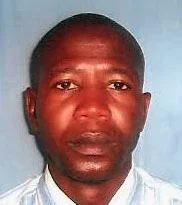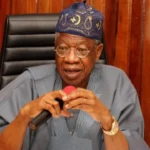Afolabi Gambari
The interim national government (or ING) of Chief Ernest Shonekan was an illegality through and through. In fairness to Shonekan, he knew it too. But he wanted to savour the allure of being numero uno in Nigeria, no matter how brief. Scarcely did he know what brought him to such an elevated post that he probably neither dreamt of nor expected from the boardroom position that he occupied at the UACN at the time. Nor was even politically inclined in the partisan way for him to aspire to reap from where he had not sowed. Above all, he did not belong to either the National Republican Convention (NRC) or Social Democratic Party (SDP) – the only two parties into which various parties in the country had been corraled by the midwifing military government of Ibrahim Badamasi Babangida.
Suddenly, Shonekan found himself being saddled with clearing the mess that Babangida had created through iconoclastic recalcitrance that led him to, against all pleas, refuse to de-annul the result of the June 12 1993 presidential election result that he annulled. Although Shonekan was far from ready for the task, he was nonetheless still expected to steady the country’s fast-sinking ship, as it were.
From August 26 1993 when Shonekan assumed office, there was turbulence all the way. It would seem that a huge booby trap had been well laid on his path – to desecrate his hallowed feats at the UACN. Perhaps, he had viewed his situation such that he did not accept it as an encumbrance, much less a veritable waterloo. The wholly civilian forged soldierly.
Startlingly, he failed to control the political crisis he inherited, no thanks to his illegitimacy for the most part. Even more startlingly, he tried to schedule another presidential election, despite being aware such resolve would not attract popular support. He attempted a shot at popularity by releasing political prisoners who had languished in various jails during the Babangida regime. The attempt failed to yield any result and the more he was served with the reminder of his illegality. His last-ditch effort at lobbying the Western powers to cancel Nigeria’s debts met with more economic sanctions from the Western powers. Although he continued to simulate being in power with his attendance at some international summits as head of the Nigerian government, he was firmly in a cul-de-sac back home. Never had a leader of this country been so ineffectual. Perhaps, never will be again.
But by November 17, 1993, when Shonekan was forced by a more ambitious General Sani Abacha to abdicate the office and power he coveted, he still managed to call a meeting of his cabinet that was by every measure an action made under duress. He began thus: “Colleagues of the Interim National Government, I have summoned you this evening on an unusual occasion. Earlier today, I met with the secretary of defence in the company of the Chief of Defence Staff and the Chief of Army Staff, and we discussed the state of the nation. They expressed serious concern about the general uneasiness in the country and the apparent lack of stability over the past three months. They spoke about the restiveness of the rank and file in the military.”
Then, he reeled out feats that could only have been a figment of his imagination: “In the social sector, we have brought back normalcy in the institutions of higher learning. On human rights, our records are impeccable and perhaps, unbeatable in the annals of our country. We freed all jailed human rights activists, pardoned all political offenders both dead and alive, allowed all politicians in exile to return home, and have not restricted the free movement of any activist in and out of the country. We also took the appropriate steps to de-proscribe the newspapers proscribed by sending the Bills to the National Assembly to be repealed. In the political arena, we have continued to work ceaselessly towards full democratisation of our dear country. On the economic scene, we were able to put in place an Economic Action Agenda for the nation in conjunction with the private sector operators.”
Then, he hit members of his cabinet with this thunderbolt: “However, I regret to inform you that in the light of recent events and after due consideration of all the facts, I am left with no alternative but to take the most honourable and dignified step of resigning, with immediate effect, my appointment as Head of State and Commander-in-Chief of the Armed Forces of Nigeria.”
The question then should be: why would he resign despite achieving so much in so short a period?
In all the foregoing, the key word is illegality – which amply defined the 82 days that Shonekan governed Nigeria from August 26, 1993, to November 17 1993. But to this day, he continues to be regarded as a “former Nigerian leader” and “former head of state”, is accorded all rights and privileges due a man of his status and – above all – has been awarded the country’s highest honour of Grand Commander of Federal Republic (GCFR). It is just as well that no Nigerian law to this day has legalised the illegality; which means the illegality is sacrosanct.
Shonekan is no longer with us (God rest his soul), having passed on in Lekki, Lagos on January 11, 2022. For the sake of law and posterity, therefore, it would be expedient for Nigeria to either legalise the Shonekan’s interim government that was neither known to law nor backed by any law or illegalise it and go further to strip the holder of the title “former Nigerian leader” or “former head of state” all the privileges attached to him, even posthumously.







